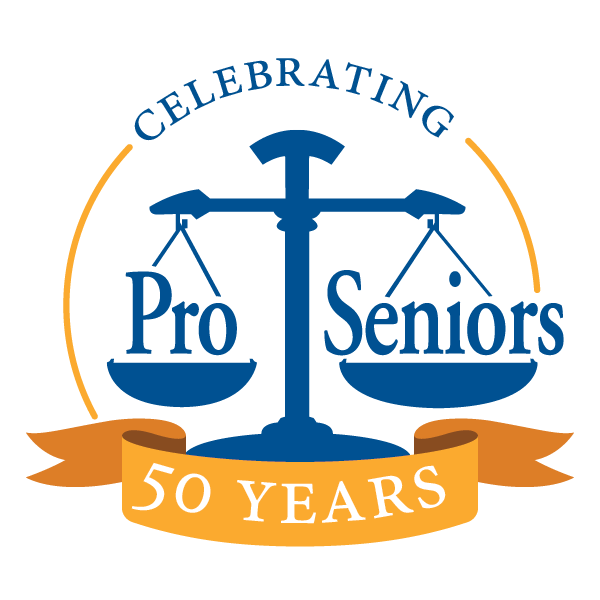
Ohio’s Advance Directives Toolkit
Pro Seniors’ Legal Toolkits help low-income Ohioans handle their legal problems without a lawyer. There are Do-It-Yourself tools to create legal forms as well as Articles and Frequently Asked Questions (FAQs) to explain the legal details. This website does not give legal advice and is not a substitute for seeing a lawyer. If you use this Legal Toolkit, let us know if it helped you and how we can improve this site by completing this Survey Form.
This Legal Toolkit explains how to create your own Advance Directives and answers questions about how it works and what to do with it after you sign it. Before you create your Advance Directives, review the Articles and the FAQs for answers to specific questions.Then, to create your own Advance Directives, use the Forms link to prepare your form.
If you still have questions, call Pro Seniors Legal Helpline for Ohioans age 60 and over at 513.345.4160 or 1.800.488.6070. There you can schedule a free 30 minute phone consultation with a Helpline attorney to answer your legal questions.
Forms
All form links can be found in sidebar under the Forms heading. Forms under the Advance Directives Toolkit include:
- Do-It-Yourself: Advance Directives Interview:
- Healthcare Power of Attorney
- Living Will
- Organ Donation Registry Form
- Do Not Resuscitate Identification Form
- Advance Directives forms in Spanish and Somali are available from Disability Rights Ohio.
Articles
Links to helpful articles can be found in the sidebar. Articles include Pro Senior’s pamphlets as well as other published documents that can help you to understand Advance Directives more fully.
Frequently Asked Questions
What are Advance Directives?
These documents tell your loved ones and healthcare providers what your wishes are in case you ever are incapacitated or cannot speak for yourself. Advance Directives allow you to express your values and desires that relate to your end of life care. The most common are a Healthcare Power of Attorney, a Living Will, a Organ Donor Registration, and a Do Not Resuscitate Order (DNR).
Why would I need Advance Directives?
Advance directives are a way for you to give consent for certain situations where you might want or not want treatment. They can also be used to appoint someone to make decisions for you if you can’t do so yourself. An advance directive gives you a better chance of having your wishes carried out, even if you can’t talk to the doctors about what you want. Advance directives also give you the opportunity to write out your end of life wishes for hospital staff to follow in case you are unable to say what you want.
Can I change my mind after I sign my Advance Directives?
Yes. You can create a new Advance Directive as long as it is signed and notarized. You may also change your mind about your care when you are in the hospital and are able to communicate your wishes.
What should I do once I sign my Advance Directives?
Give copies of your Advance Directives to your healthcare agent, your backup agent and your doctor. Make sure you are aware of who has a copy of your Advance Directives in case you change your mind about your wishes. If you change your mind, make sure you tell your agents and doctors about any updates.
What are other medical wishes that can be in my Advance Directives?
Other end of life issues that can be covered in your Advance Directives include ventilation, tube feeding, palliative care, or organ donation. Ventilation is if and when you would want a machine to take over your breathing to keep you alive. Tube feeding is if, and how long you want to be fed through a tube in your stomach or through an IV. Palliative care is what manages your pain medicine and other comfort care at the end of life. Organ donation is whether you want to donate your organs to other patients or research.
Both the Living Will and Healthcare Power of Attorney allow for special instructions to be added to the document.
What is a Healthcare Power of Attorney?
A Healthcare Power of Attorney (HCPOA) allows you to appoint a person you trust as your healthcare agent (or Attorney-in-Fact) who is authorized to make medical decisions on your behalf if you are unable to do so. A Healthcare Power of Attorney will adhere to your wishes and values and will discuss your medical care and end of life issues if you are unable to decide for yourself.
What does my agent do?
Your agent must make the same health care decisions as you would if you were competent to make those decisions. If your agent does not know what decision you would have made, then he or she must use his or her best judgment to decide what is in your best interest in any situation. However, your agent has no authority to refuse or withdraw food and water if you are permanently unconscious, unless you specifically granted him or her such authority or your attending physician and at least one other physician who has examined you determine that nutrition or hydration will not serve to provide comfort, or alleviate pain.
Who should I choose to be my healthcare agent?
You should choose someone who you trust to make healthcare decisions for you. You must be able to feel confident in discussing your wishes for medical care with this person. Your agent also must be willing to respect your healthcare wishes and will fulfill them in the way you want, even if they disagree with your wishes.
What if I don't have anyone to name in my Healthcare Power of Attorney?
If you don’t have anyone to name you can complete a living will that will state your wishes for any medical care that you feel strongly about.
